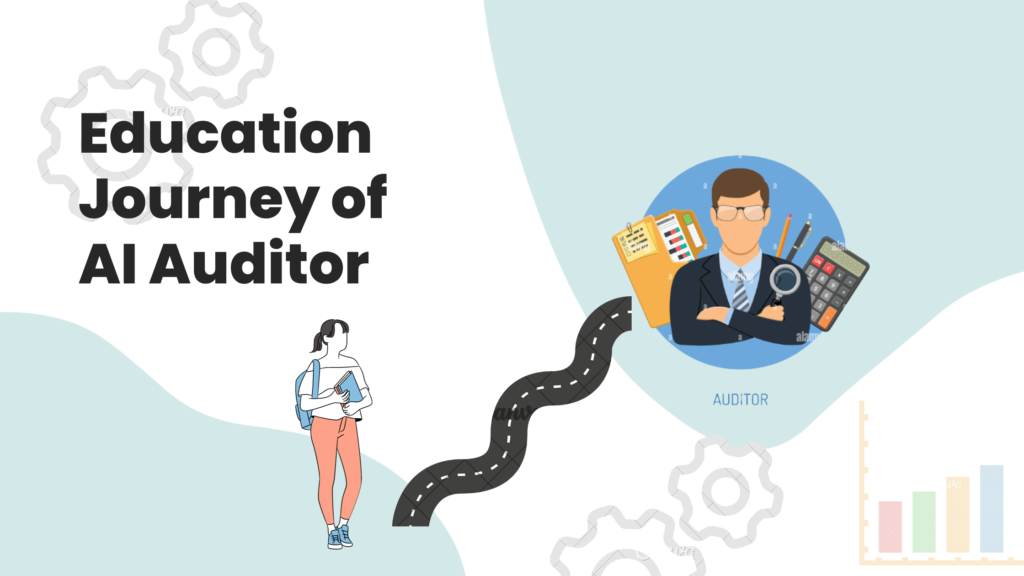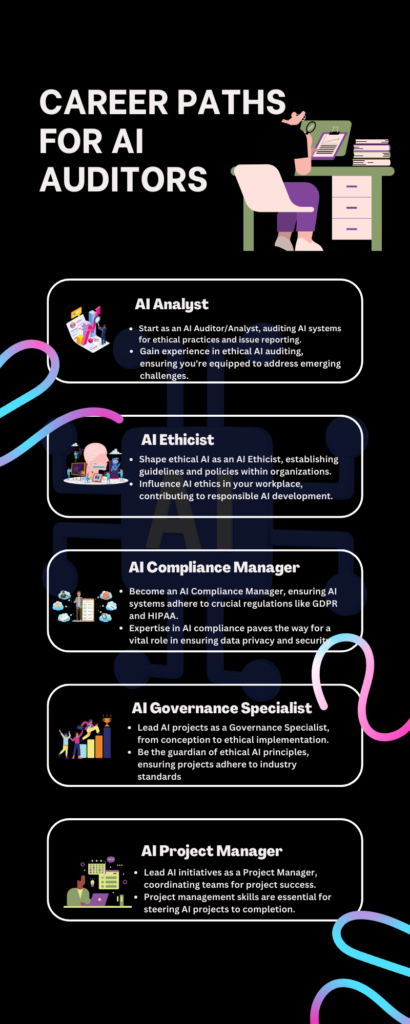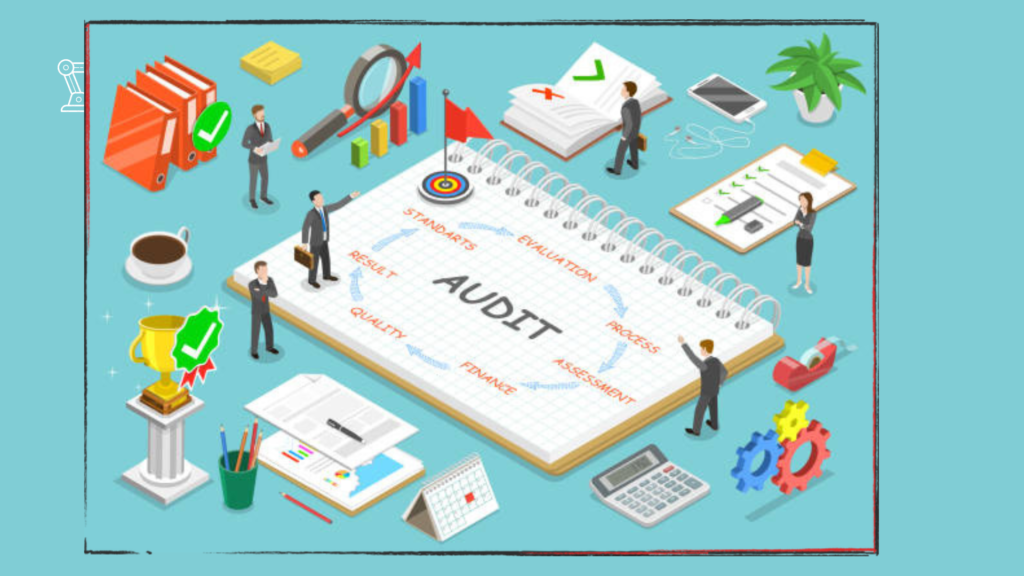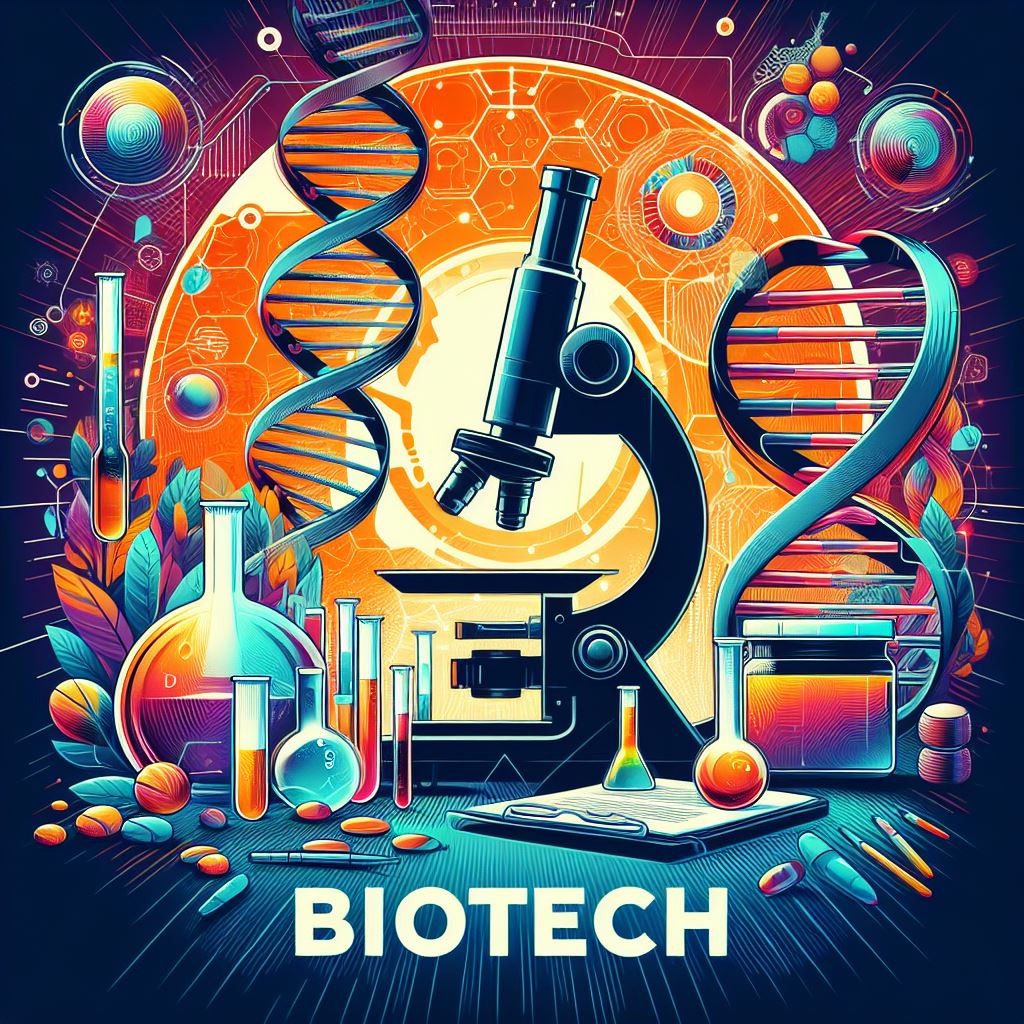- Introduction
- Defining AI Auditing
- Navigating the Path to Becoming an AI Auditor
- Courses/Certifications
- Essential Skills Required for AI Auditors
- Staying Updated with Trends
- Unveiling a promising career as an AI Auditor
- Growing Demand for AI Auditors
- Potential Career Paths for AI Auditors
- Advancement in the field of AI auditing is both rewarding and boundless:
- The field of AI auditing offers avenues for growth and development:
- Case Studies: The Crucial Role of AI Auditing in Real-World Scenarios
- The significance of AI auditing:
- Frequently Asked Questions:
Introduction
In this changing world of technology, the role of an AI auditor has emerged as a dynamic career choice. With organizations relying on artificial intelligence (AI) and machine learning (ML) to improve their operations; the demand for professionals who can ensure ethical, transparent, and responsible AI systems is higher than ever before.
In this article, we will delve into the captivating field of AI auditing. Discuss the topics at hand. We will also explore why AI auditing is important and the opportunities and challenges it brings. Lastly, we will take a glimpse into what lies in AI auditing.
Defining AI Auditing
What does AI auditing entail? Essentially it involves examining AI systems to guarantee that they adhere to the standards of ethical conduct, transparency, and accountability. Think of AI auditors as watchdogs that watch for issues that may arise when unchecked AI systems are used.
As AI systems continue to evolve so do the risks associated with them. This is where the role of an AI auditor becomes crucial in upholding standards for intelligence. They meticulously review AI algorithms and their applications while scrutinizing them for biases, security vulnerabilities, and compliance, with ethical norms.
In this world driven by AI being an AI auditor is not a job; it’s a mission to ensure that AI technologies are used responsibly and fairly. AI auditor plays an important role in tackling the ethical dilemmas brought about by AI.
As technology progresses the demand, for AI auditors becomes more essential. In the following sections of this article, we will explore in detail the aspects, approaches, and practical applications that make AI auditing a highly significant career choice.
Navigating the Path to Becoming an AI Auditor

In the changing world of AI auditing, it is crucial to stay in the game. As guardians of AI practices, AI auditors need an educational background and continuously evolving skills. This section will discuss the importance of education, skills, certifications, and staying current in this evolving field.
Educational Background
Undergraduate Degree: Start your journey, with a bachelor’s degree in a field such as computer science, data science, mathematics, or engineering. Having a foundation in these areas is vital for understanding the complexities of AI systems.
Advanced Degrees: Many AI auditors choose to pursue master’s or even doctoral degrees in fields like machine learning, intelligence, or data ethics. These advanced degrees provide knowledge and open doors to senior positions.
Continued Learning: The field of AI never stands still. To excel as an AI auditor consider enrolling in courses, workshops, or boot camps that focus on topics, like AI ethics, transparency, and related subjects. These opportunities will keep you updated with the advancements.
Courses/Certifications
| Course | Details |
| https://www.ibm.com/training/badge/ibm-applied-ai-professional-certificate | This program is centered around the management and oversight of AI systems from a business point of view. It encompasses subjects, like managing risks ensuring compliance and addressing concerns. |
| https://cob.sfsu.edu/management/certificate/ai-ethics | This program explores the ethical implications of AI and provides training in auditing AI systems for fairness, bias, and transparency. |
| https://catalogs.sandiego.edu/graduate/courses/aai/ | Multiple modules related to AI, machine learning, neural network and deep learning. |
| Indian Institute of Technology (IIT) – Various locations | Several IITs offer M.Tech programs in Artificial Intelligence and Machine Learning, including IIT Bombay, Delhi, Madras, Hyderabad, and Kanpur. These programs cover relevant topics like deep learning, natural language processing, and computer vision, which are crucial for AI auditing. |
| Indian Institute of Science (IISc) – Bangalore | IISc offers an M.Tech program in Data Science, which provides a strong foundation in data analysis, machine learning, and statistical methods. These skills are essential for performing AI audits. |
| National Institute of Technology (NIT) | Various locations: Many NITs offer M.Tech programs in Computer Science and Engineering or related fields, which may include courses on AI and machine learning. These programs can provide a good foundation for understanding the technical aspects of AI systems. |
| Amrita Vishwa Vidyapeetham – Coimbatore | This university offers an M.Tech program in Artificial Intelligence, which covers topics relevant to AI auditing, such as explainable AI, fairness in AI, and responsible AI. |
| University of Hyderabad – Hyderabad | This university offers an M.Sc. program in Data Science, which provides a strong foundation in data analysis, machine learning, and statistical methods. These skills are essential for performing AI audits. |
| Symbiosis Institute of Technology (SIT) – Pune | SIT offers a B.Tech program in Artificial Intelligence and Machine Learning, which provides a strong foundation in the technical aspects of AI. This program can be a good starting point for individuals interested in pursuing a career in AI auditing |
| Sardar Patel Institute of Technology (SPIT) – Mumbai | SPIT offers an M.Sc. program in Artificial Intelligence, which covers topics relevant to AI auditing, such as deep learning, natural language processing, and computer vision. |
| Vellore Institute of Technology (VIT) – Various locations | VIT offers B.Tech and M.Tech programs in Computer Science and Engineering, which may include courses on AI and machine learning. These programs can provide a good foundation for understanding the technical aspects of AI systems. |
| Manipal Institute of Technology (MIT) – Manipal | MIT offers an M.Tech program in Data Science, which provides a strong foundation in data analysis, machine learning, and statistical methods. These skills are essential for performing AI audits. |
| Birla Institute of Technology and Science (BITS) – Pilani, Goa, Hyderabad | BITS offers B.Tech and M.Tech programs in Computer Science and Engineering, which may include courses on AI and machine learning. These programs can provide a good foundation for understanding the technical aspects of AI systems. |
Essential Skills Required for AI Auditors
Understanding Ethics: AI auditors must possess an understanding of principles and the capacity to recognize and address ethical concerns within AI systems.
Analyzing Data: Proficiency in data analysis is crucial for evaluating the fairness, accuracy, and potential biases of AI algorithms.
Programming Skills: It is essential for AI auditors to have a grasp of programming languages like Python and R in order to comprehend and assess AI models effectively.
Communication: The ability to communicate technical concepts to non-technical stakeholders is invaluable in ensuring transparency and accountability in the field of AI.
Regulatory Awareness: AI auditors should demonstrate an understanding of regulations and compliance requirements specific to their industry as these can vary significantly.
Critical Thinking Abilities: Having the capacity to think critically and evaluate AI systems from a compliance standpoint is a skill for any competent AI auditor.
To know about other careers
Staying Updated with Trends
In the rapidly evolving field of AI, staying updated is not merely a choice but an absolute necessity. The significance of this cannot be emphasized enough:
- Embracing Technological Advancements: New AI models and technologies are in a constant state of emergence. Staying current is crucial to stay informed about the latest trends and developments.
- Adapting to Regulatory Shifts: The legal and ethical landscape surrounding AI can change swiftly. Staying informed is vital to ensure ongoing compliance.
- Gaining a Competitive Edge: Committing to continuous learning and skill development provides a competitive advantage in the job market. It showcases your unwavering commitment to the field.
Unveiling a promising career as an AI Auditor
In this era of rapid progress in artificial intelligence, the role of an AI auditor takes center stage in guaranteeing ethical, transparent, and responsible AI practices.
With the growing demand for ethical AI implementation, the field of AI auditing not only promises a bright career path but also the opportunity to lead the way in digital ethics.
In this section, we will explore the thriving job market for AI auditors, potential career trajectories, and avenues for professional growth in this dynamic sector.”
Growing Demand for AI Auditors
The demand, for auditors specializing in AI has experienced a surge in years and there are no signs of it slowing down. Companies are increasingly realizing the importance of practicing AI and being accountable for their actions. This is driven by factors:
- Ethical Considerations: As the impact of AI on individuals and society becomes more apparent there is mounting pressure to ensure that AI systems are free from biases and any ethical concerns.
- Compliance with Laws and Regulations: With regulations constantly evolving and industry-specific compliance requirements auditing AI systems becomes crucial to avoid consequences and protect a companys reputation.
- Building Public Trust: Organizations strive to maintain trust by showcasing their dedication to ethical AI practices often achieved through thorough auditing processes.
Overall the demand for AI auditors continues to rise as businesses recognize the need, for the implementation of intelligence technologies.
Potential Career Paths for AI Auditors
AI auditing offers a wide range of dynamic career pathways, empowering professionals to specialize in various facets of ethical AI implementation:
- AI Auditor/Analyst: At the entry-level, these positions center on the auditing of AI systems, ensuring ethical practices, and reporting potential issues.
- AI Ethicist: Professionals in this role concentrate on the ethical dimensions of AI, actively working to establish ethical guidelines and policies within organizations.
- AI Compliance Manager: This role carries the responsibility of ensuring that AI systems are in compliance with pertinent laws and regulations, which may include GDPR, HIPAA, and industry-specific standards.
- AI Governance Specialist: Specializing in governance, these professionals oversee AI projects from their inception to full-scale implementation, ensuring that ethical principles are upheld.
- AI Consultant: Some AI auditors choose the path of consultants, offering guidance to organizations on AI ethics, compliance, and the best practices in the field.

Advancement in the field of AI auditing is both rewarding and boundless:
The field of AI auditing offers avenues for growth and development:
- Senior Auditor or Analyst: With experience, you can advance to higher-level roles where you lead audit teams and have an impact on promoting AI practices.
- Director of AI Ethics or Compliance: As you progress in your career you may have the opportunity to become a director overseeing an organization’s efforts in AI ethics and compliance.
- Chief Ethics Officer: In organizations that prioritize AI reaching the pinnacle of the field is possible by becoming a Chief Ethics Officer.
- Consulting and Entrepreneurship: Seasoned AI auditors might consider starting their consulting firms or businesses dedicated to providing AI solutions.
In a world where the influence of AI continues to grow the role of an AI auditor is more crucial than before. By being at the forefront of implementation, AI auditors enjoy a career characterized by advancement, diversity, and an unwavering commitment to upholding the standards of AI ethics.
Embarking on the path towards becoming an AI auditor opens doors to a fulfilling profession while positioning oneself as a champion for technology in this era.
Case Studies: The Crucial Role of AI Auditing in Real-World Scenarios
The importance of an AI auditor should not be overlooked in the evolving field of AI technology. The task of auditing AI systems acts as a measure, against issues and difficulties that can occur when these systems are not properly monitored.
In this section, we will delve into real-life examples that highlight the significance of AI auditing both in instances where it has been successfully implemented and cases where insufficient oversight has led to outcomes.
Case Study 1: Healthcare Diagnostics
Here is a case study of an AI system used for diagnosing skin cancer:
Researchers from the University of Hawaiʻi Cancer Center conducted a study to detect skin cancer using artificial intelligence (AI). They have successfully trained an AI platform that can accurately classify types of skin lesions.
The platform was specifically trained to identify and label a collection of images of pigmented skin lesions, previously diagnosed by experts, as either melanoma or nonmelanoma. Both the AI platform and dermatologists showed accuracy in their diagnoses.
In another study, researchers demonstrated that artificial intelligence outperformed dermatologists in identifying skin cancer. They used a learning neural network (CNN) for this study comparing its performance to a group of 58 dermatologists.
A significant advancement in skin cancer detection was showcased at the European Academy of Dermatology and Venereology (EADV) Congress 2023 through an AI software solution.
During a period of 2.5 years, the study examined 22,356 patients with suspected skin cancers. The latest version of the software achieved results with 100% sensitivity in detecting melanoma (59 out of 59 cases identified). Additionally, it accurately detected 99.5% (189 out of 190) of all skin cancers. Identified 92.5% (541, out of 585) of cancerous lesions.
However, it is crucial to acknowledge that although these findings show promise experts emphasize the need for AI to be utilized alongside the expertise of a Consultant Dermatologist rather than relying on it as a detection tool.
Research links:
https://www.hawaii.edu/news/2021/11/29/ai-detects-skin-cancer-study/
https://medicalxpress.com/news/2023-10-ai-software-significant-skin-cancer.html
In a healthcare facility, doctors were introduced to an AI system that aimed to aid in the diagnosis of skin cancer. The AI’s main selling point was its capacity to analyze a collection of images and provide prompt and precise diagnostic suggestions.
However, as the initial excitement waned concerns arose regarding biases, in the AI’s recommendations. To address these concerns AI auditors were brought in to conduct an assessment of the system.
The significance of AI auditing:
The auditors responsible, for assessing the AI system carefully examined its training data and algorithms. They discovered that the training data primarily represented a group leading to biased diagnostic recommendations, especially for individuals with different skin types and colors.
The audit findings prompted a series of measures including retraining the AI model on diverse and inclusive data.
Outcome:
Thanks to the intervention of these AI auditors, the fairness and accuracy of the AI system have improved. It also gained the trust of both doctors and patients.
This case study highlights how AI auditing can prevent decision-making and enhance the practical aspects of implementing AI in critical areas such as healthcare.
Case Study 2: Self-driving Vehicles
In March 2018 an autonomous vehicle being tested by Uber was involved in an accident, in Tempe, Arizona. The vehicle struck a pedestrian named Elaine Herzberg, aged 49 as she was crossing the road. This incident marked the recorded death involving a self-driving car.
The vehicle had a safety driver named Rafael Vasquez who had the ability to take control of the vehicle in emergencies. However, investigations revealed that Vasquez was watching an episode of the popular TV show The Voice during the time of the accident. Dashcam footage clearly captured Vasquez diverting her attention from the road for seconds, before the crash.
The National Transportation Safety Board (NTSB) determined that the main cause of the accident was Vasquez’s failure to monitor her surroundings while relying on the automated system. It was discovered that throughout the trip Vasquez remained visually distracted by her cell phone.
Despite these findings, only Uber self-driving operator faced charges of homicide as it was concluded that there were no grounds for liability against Uber as a corporation.
As a consequence of this incident Uber decided to halt its self-driving technology testing, in Arizona. This case shed light on challenges associated with vehicles and sparked crucial debates regarding liability and regulation. It underscored that although autonomous vehicles have promising potential to enhance road safety there are still hurdles to overcome in terms of integrating them with drivers and pedestrians.
An AI auditor might have been able to help prevent the accident in ways:
- Risk Assessment: AI auditors have the ability to conduct risk assessments identifying hazards and vulnerabilities within the AI system. In this case, they could have recognized the risk of the safety driver being distracted and unable to take control in a manner.
- System Evaluation: AI auditors are capable of evaluating the performance of an AI system ensuring that it operates as intended. They could have assessed whether the autonomous vehicle had the capability to detect and respond appropriately to pedestrians, on its path.
- Regulatory Compliance: AI auditors play a role in ensuring that AI systems comply with all regulations. They would have made sure that Uber’s self-driving car met all safety standards and complied with regulations.
- Ethical Guidelines: Additionally AI auditors can ensure that ethical guidelines are integrated into AI systems. In this case, they would have evaluated whether Uber’s self-driving car was programmed to prioritize safety above everything else.
- Ongoing Monitoring; Lastly by providing monitoring of AI systems auditors can quickly identify any changes or anomalies that may signal issues. They would likely detect any performance-related concerns with the vehicle prior, to the occurrence of such an accident.
However, it’s important to understand that while an AI auditor could have potentially played a role, in preventing this accident their purpose is not to replace oversight but to enhance it. Ultimately the responsibility for ensuring the operation of vehicles lies with the companies that develop and deploy them.
Takeaways:
In a world where the influence of AI continues to grow the role of an AI auditor is more crucial than before. As pioneers in promoting the implementation of AI, AI auditors embark on a career marked by growth, diversity, and an unwavering commitment to upholding the standards of AI ethics.
The path towards becoming an AI auditor opens doors to a fulfilling career. Positions you as a champion for technology in today’s digital era.
In the paced realm of AI, education, and skill development are processes. As learners, AI auditors must adapt to challenges and technologies in order to fulfill their vital role, as guardians of ethical AI systems. By investing in your education obtaining certifications and staying updated with advancements you can pave a career path in this dynamic field.
Frequently Asked Questions:
AI Auditor refers to the utilization of intelligence (AI) techniques to enhance the efficiency, effectiveness, and quality of auditing processes. It can also refer to the role of auditors who assess the risks, controls, and governance of AI systems. Here are some asked questions about AI Auditor:
- What advantages does AI Auditor offer?
A. AI Auditor enables auditors to perform their tasks with speed, precision, and comprehensiveness. It assists in identifying patterns, trends, and anomalies within complex datasets while providing insights and recommendations based on data analysis. Additionally, AI Auditor helps minimize errors, biases, and subjective judgments in auditing processes.
2. What challenges does AI Auditor present?
A. AI Auditor comes with its set of challenges for auditors. These include understanding the logic, assumptions, and limitations underlying AI models; ensuring the quality, reliability, and security of AI data sources; verifying compliance with standards, in utilizing AI systems; well as maintaining auditor independence and objectivity.
3. How can auditors prepare themselves for implementing AI Auditor?
A. Auditors must update their knowledge and skills to adapt to the changes introduced by AI auditors. They should familiarize themselves with the fundamentals of AI including machine learning, natural language processing, and robotics. It is also essential for auditors to understand how these technologies are applied in auditing and the implications they bring. Additionally, auditors need to become acquainted with the standards, frameworks, and tools used for auditing AI systems, such, as COBIT 2019.
4. What are some examples of applications for AI Auditors?
A. AI Auditor can be utilized in areas of auditing including risk assessment, audit planning, execution, reporting, and follow-up. For instance, it can assist auditors in analyzing process documents selecting audit samples, testing controls detecting frauds or irregularities generating audit reports, and monitoring audit recommendations.
5. How can auditors assess AI systems?
A. To evaluate AI systems auditors should adopt a structured approach. They need to consider the objectives scope and criteria of the audit, alongside the characteristics components, and context of the AI system itself. Auditors must assess risk control measures governance performance outcomes as impacts associated with an AI system.
6. What are some risks that come with using AI systems?
A. AI systems can present a range of risks, for organizations and stakeholders including financial, legal, ethical, and reputational risks. For instance, these systems may experience malfunctions produce biased outcomes, violate laws or regulations infringe upon rights or values, or undermine trust and reputation.
7. What are some measures to mitigate AI risks?
A. Controls refer to actions or measures that reduce or eliminate the likelihood or impact of risks. Controls can be preventive or detective in nature. Can encompass automated processes as well as technical or organizational approaches. Some examples of controls used to mitigate AI risks include data validation, model testing, error handling protocols audit logging practices, encryption techniques for security purposes authentication procedures authorization mechanisms segregation of duties policies procedures, and training programs.
8. What are some recommended approaches for governing AI systems?
A. Governance entails a set of processes and structures that ensure the alignment direction and oversight of AI systems with goals and values. Governance may take on forms such as external approaches formalized frameworks decentralized structures etc. Some best practices, for governing AI systems include defining roles and responsibilities establishing guiding principles and standards implementing processes and control mechanisms monitoring performance compliance reviewing outcomes and impacts engaging stakeholders in decision-making processes.
9. How can auditors utilize COBIT 2019 to audit AI systems?
A. COBIT 2019 offers a framework that governs and manages information and technology within organizations. It provides auditors with a set of principles, goals, practices, and resources to ensure efficient audits of AI systems. Additionally, COBIT 2019 offers guidance on how to adapt the framework to contexts and requirements.
10. Where can auditors access resources on AI Auditor?
A. Auditors can find a wealth of resources, on AI Auditor from sources including associations like ISACA, academic institutions such as Deloitte, research organizations like Wikipedia, online platforms like Google, and publications like the ISACA Journal. Moreover, auditors can connect with professionals in the field who possess experience or interest, in AI Auditor.





